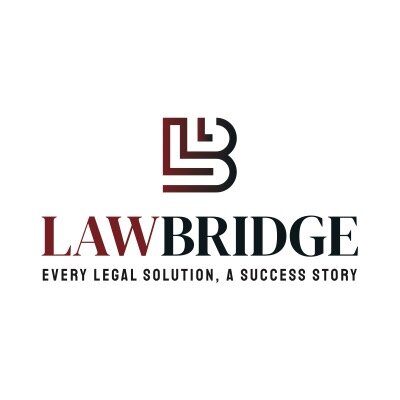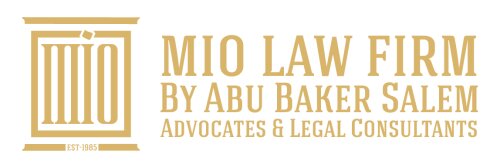Best Workers Compensation Lawyers in Dubai
Share your needs with us, get contacted by law firms.
Free. Takes 2 min.
List of the best lawyers in Dubai, United Arab Emirates
About Workers Compensation Law in Dubai, United Arab Emirates
In Dubai, the United Arab Emirates (UAE), the Workers Compensation Law is enshrined in the Federal Law No. 8 of 1980, which regulates labor relations. This law is designed to protect the rights and interests of employees, including their right to compensation in the event of an occupational injury or illness. This compensation covers medical costs, loss of income during treatment/recovery, and in the unfortunate event of permanent disability or death, the law provides provisions for this too.
Why You May Need a Lawyer
You may require a lawyer’s assistance if you have experienced any form of occupational distress such as injury, disease, or disability directly related to your employment. A lawyer will help you navigate through the intricate legal framework, ensure that your claim is properly filed and represented, appeal denied claims, or even deal with situations where the compensation offered is inadequate or non-existent.
Local Laws Overview
The key aspect of local workers compensation law in Dubai is that employers are obliged to provide financial compensation to any employee who suffers an occupational accident or contracts a job-related illness. This should cover all related medical costs and a full wage for the entire duration of treatment or a maximum of six months. However, if the treatment exceeds six months, then the allowance may be reduced by half. In severe cases involving disability or death, the law provides for lump sum compensation, depending on the nature and extent of disability and wage of the worker.
Frequently Asked Questions
1. What constitutes 'occupational injury'?
An occupational injury includes any incident that occurs within or as a direct result of performing the employee's job duties. This includes accidents at the physical place of work and those that occur during work-related activities or utilizing work equipment.
2. How soon should I report my injury to my employer?
Any occupational injury should be reported to the employer immediately. Under the UAE labor law, failure to report an occupational injury within a period of 30 days might result in the rejection of the claim.
3. Can my employer retaliate against me for filing a claim?
No, your employer is prohibited by law from retaliating against you for filing a workers' compensation claim. If such retaliation occurs, you should contact a lawyer immediately.
4. What if my worker's compensation claim is denied?
If your claim is denied, it's advisable to seek legal assistance to file an appeal and ensure that all necessary steps are taken to assist you in receiving your deserved compensation.
5. Can I file for a claim if I contract a disease related to work?
Yes, the Workers Compensation Law covers both occupational injuries and job-related diseases.
Additional Resources
The Ministry of Human Resources and Emiratisation (MoHRE) is a valuable resource for workers compensation in Dubai, JAFZA is particularly beneficial for people working within the Free Zones. Additionally, you may refer to the UAE Labour Law for further legislative information.
Next Steps
If you need legal assistance in Workers Compensation, the first step is to identify a reputable lawyer or law firm specializing in Employment & Labour Law. Gather all your employment documents and any proof of injury or illness (medical reports, etc.). An initial consultation with the lawyer will guide you on the best course of action to take, based on the specific facets of your situation.
Lawzana helps you find the best lawyers and law firms in Dubai through a curated and pre-screened list of qualified legal professionals. Our platform offers rankings and detailed profiles of attorneys and law firms, allowing you to compare based on practice areas, including Workers Compensation, experience, and client feedback.
Each profile includes a description of the firm's areas of practice, client reviews, team members and partners, year of establishment, spoken languages, office locations, contact information, social media presence, and any published articles or resources. Most firms on our platform speak English and are experienced in both local and international legal matters.
Get a quote from top-rated law firms in Dubai, United Arab Emirates — quickly, securely, and without unnecessary hassle.
Disclaimer:
The information provided on this page is for general informational purposes only and does not constitute legal advice. While we strive to ensure the accuracy and relevance of the content, legal information may change over time, and interpretations of the law can vary. You should always consult with a qualified legal professional for advice specific to your situation.
We disclaim all liability for actions taken or not taken based on the content of this page. If you believe any information is incorrect or outdated, please contact us, and we will review and update it where appropriate.

















